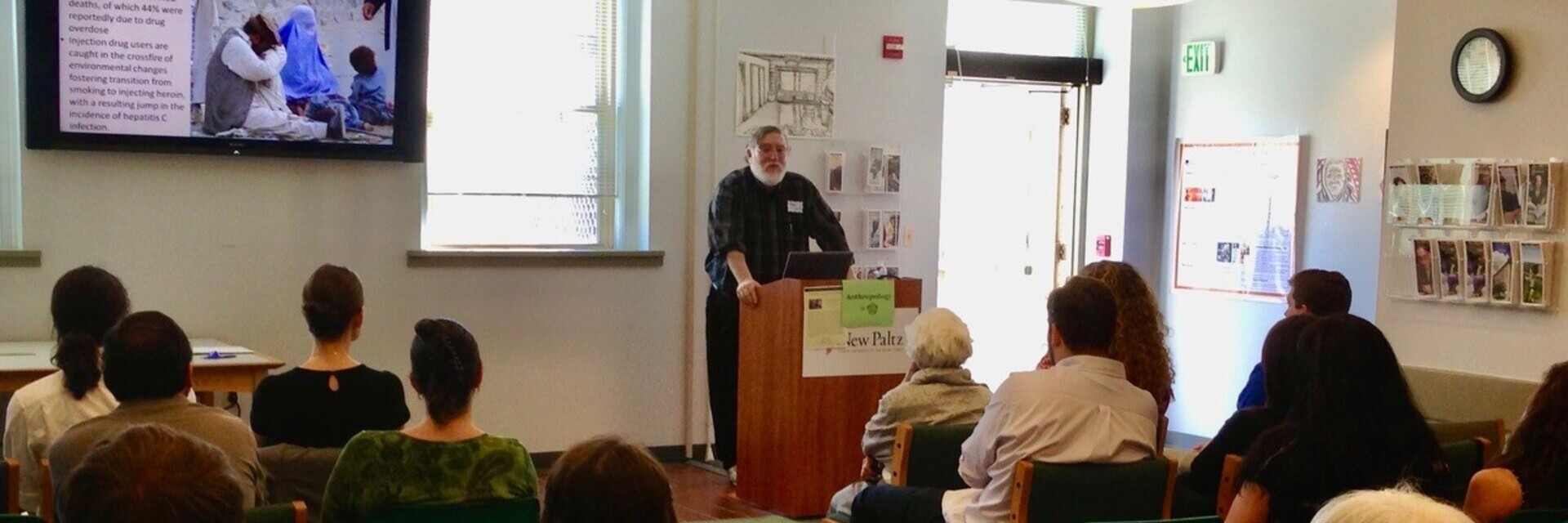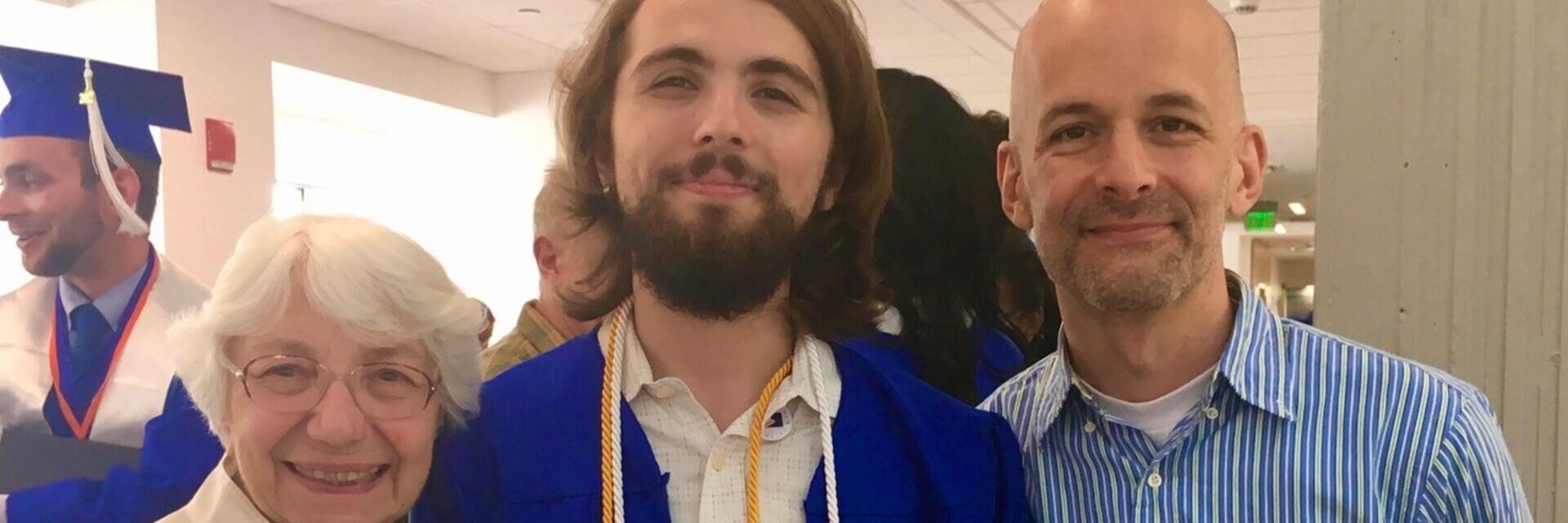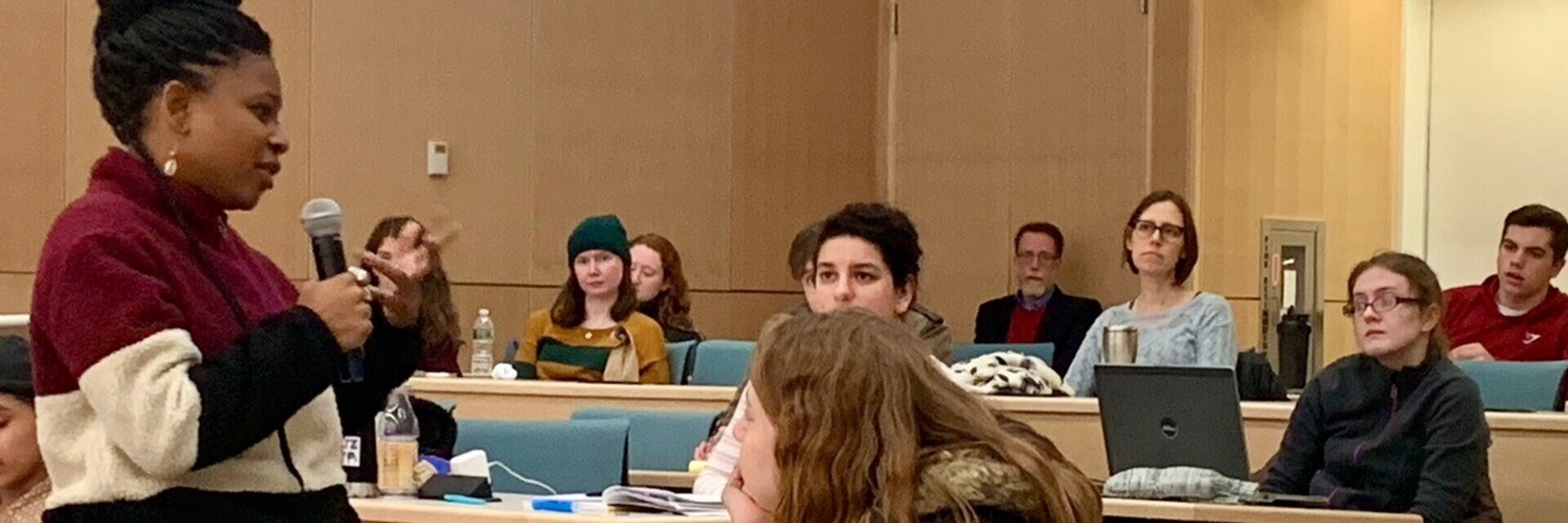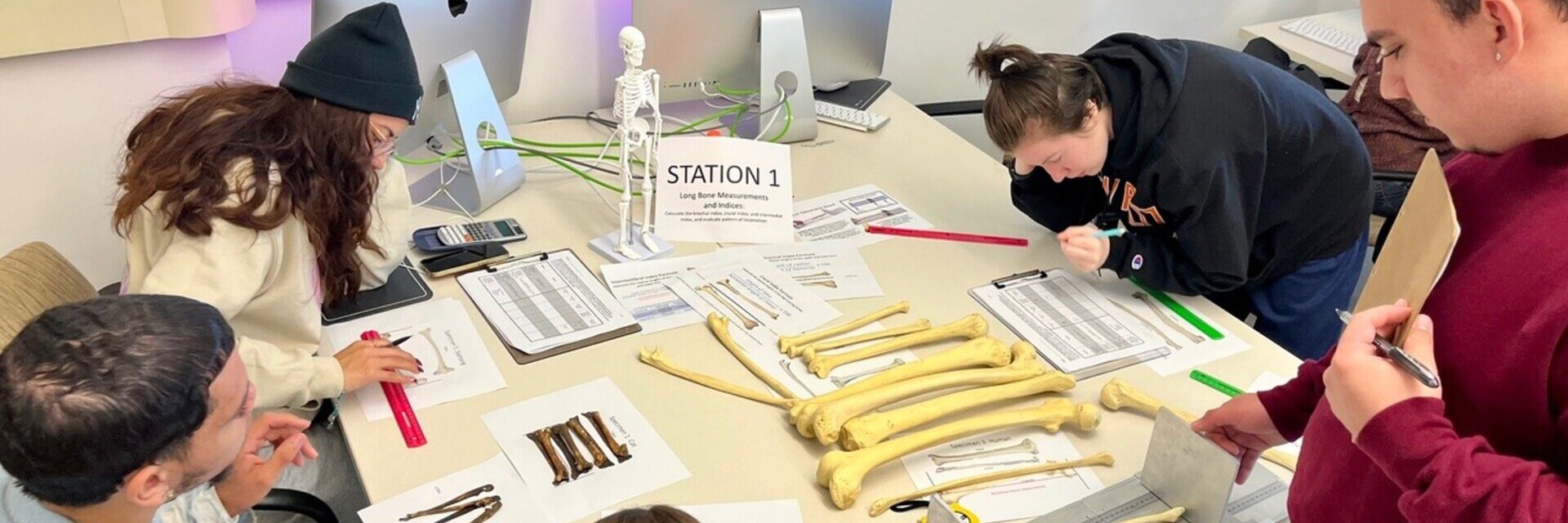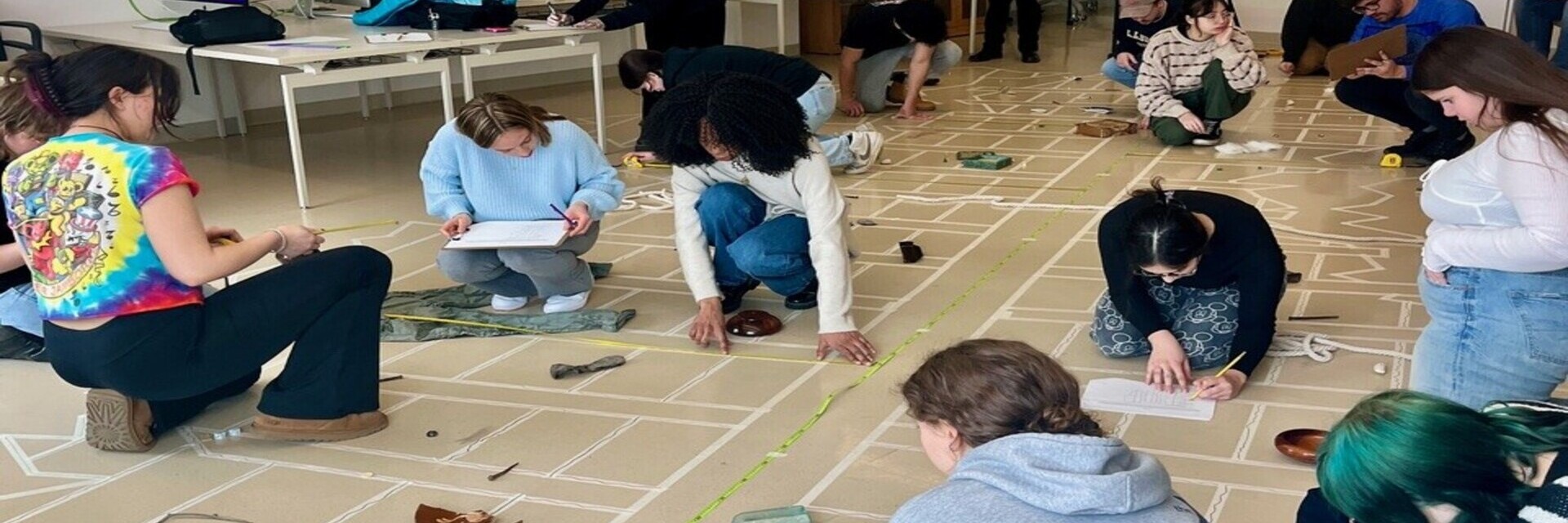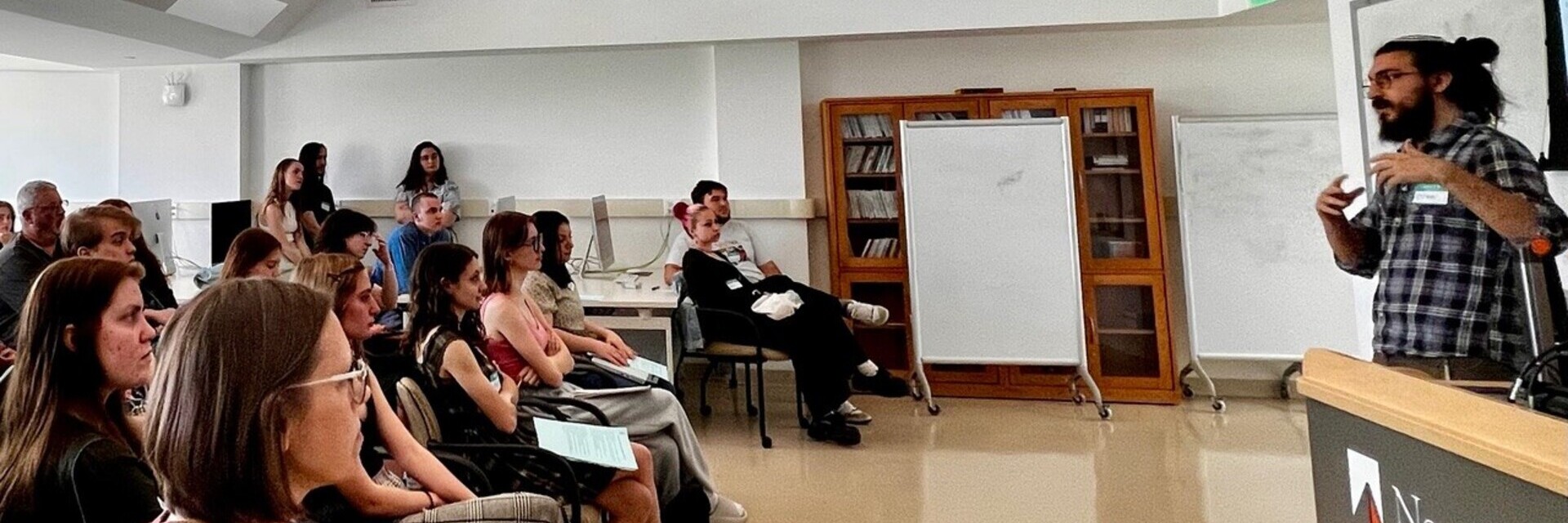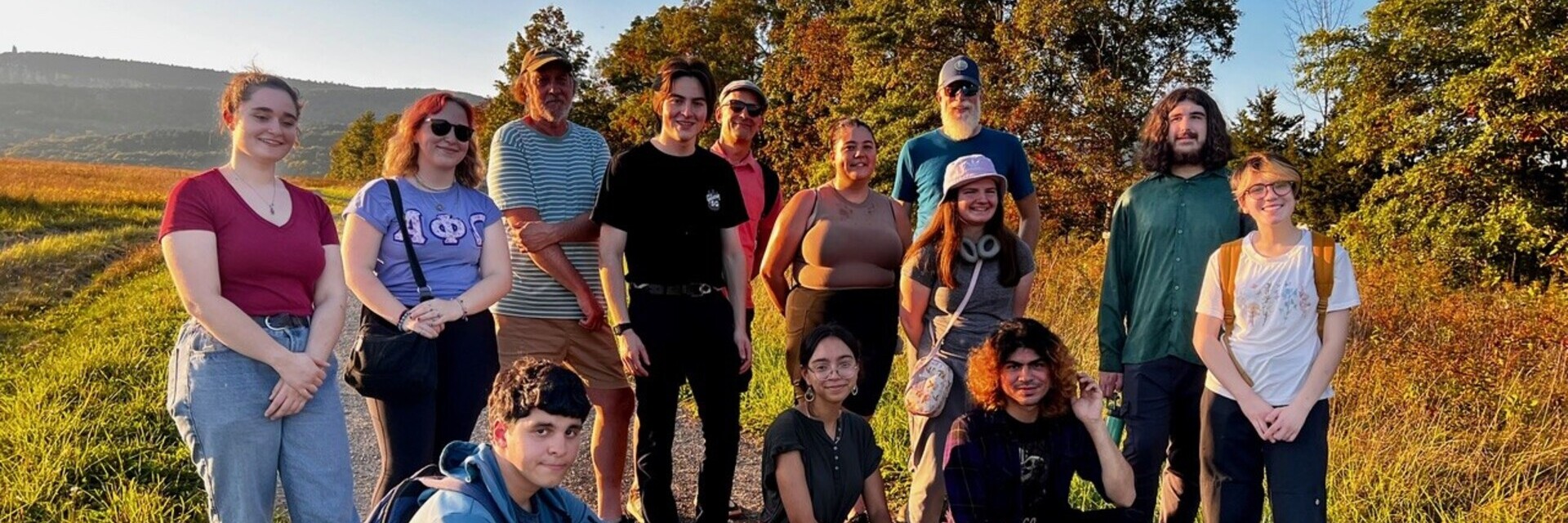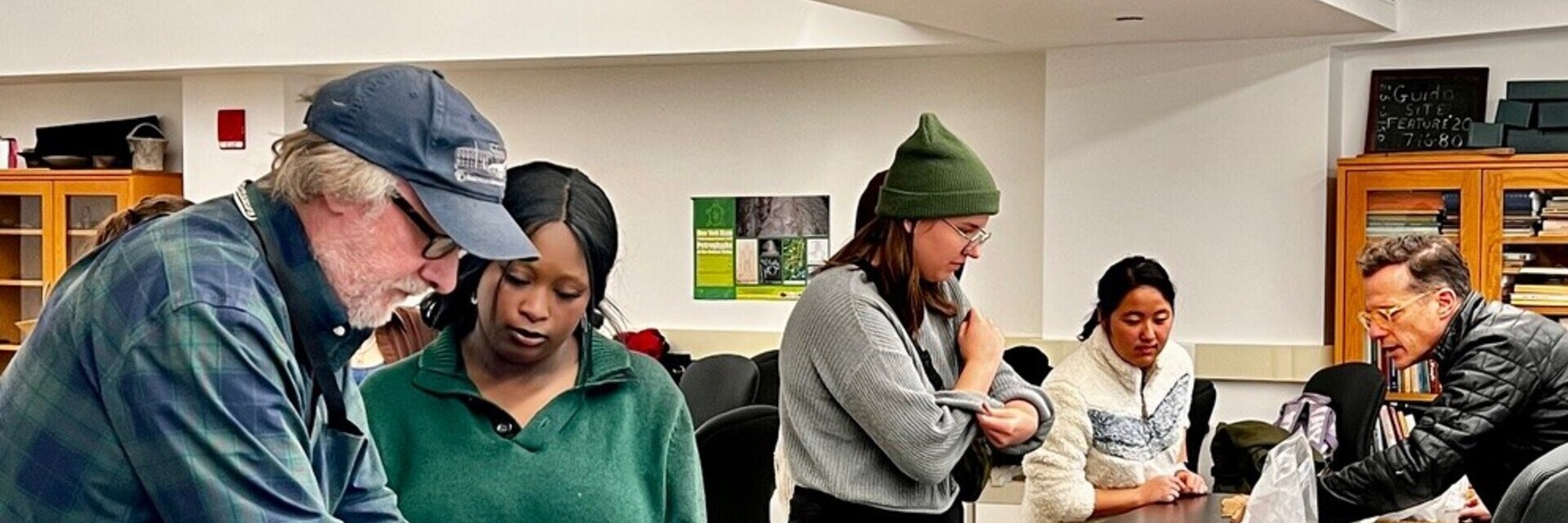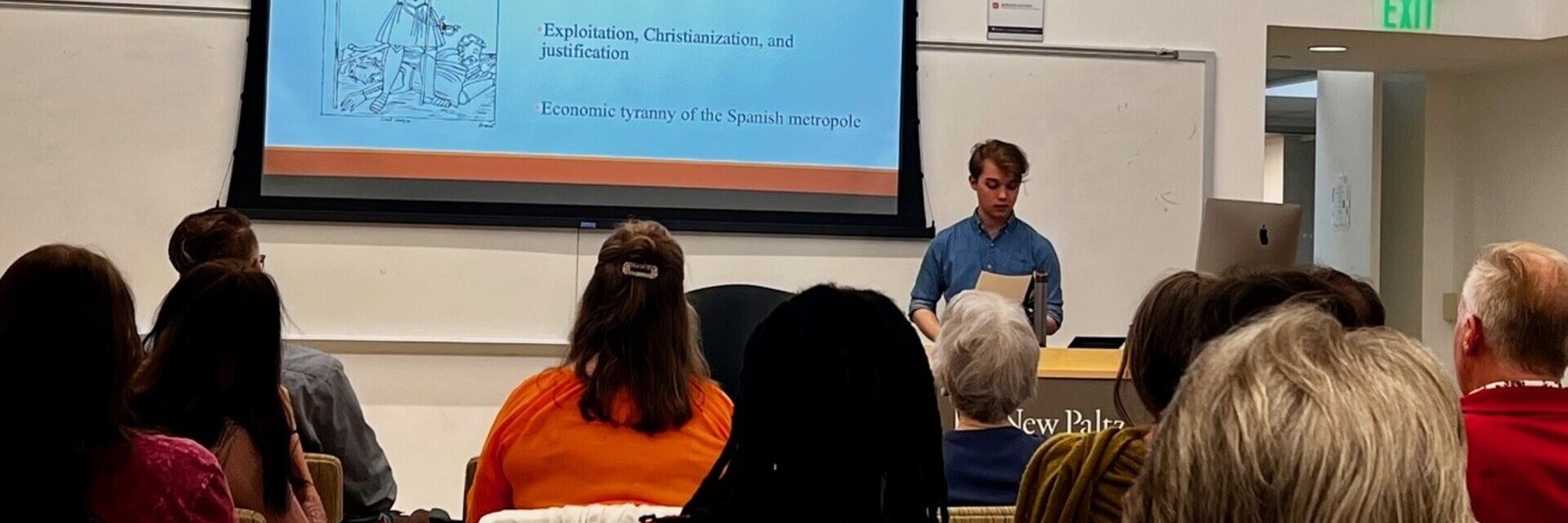INTERESTED IN ANTHROPOLOGY? INTERESTED INEQUALITY?
Anthropology is the holistic study of humankind, across geographic space and evolutionary/historical time. Divided into the subfields of cultural and linguistic anthropology, archaeology, and biological anthropology, Anthropology explores our cultural, linguistic, and biological diversity, and how our lives are shaped by historical, social, political, and environmental contexts. At New Paltz, we emphasize how structures of inequality impact human bodies, material products, and lifeways, and how inequality shapes the distribution of resources, opportunities for health and wellbeing, and access to various forms of power for human populations.
At New Paltz, Anthropology students are exposed to diverse case studies from around the world and trained in a range of theoretical traditions and research methodologies. Students can study Anthropology as a major, as a minor, or through our general education courses. Majors choose either a general course of study or a concentration in Gender, Health and the Body or Representation and Identity. You can find detailed information about the major in this document - Requirements and Concentrations - and about the minor here.
Through classroom instruction, experiential learning, and research opportunities, we cultivate a deep appreciation for the complexity of human societies and train students to be critical thinkers, capable researchers, and responsible citizens. Our curriculum emphasizes outside-the-classroom participation, including departmental events, professional development, and research ethics certification. We prepare students for diverse post-graduation paths, including graduate study, teaching, community organizing, business, law, health-related fields, public service, forensics, environmental sustainability, and cultural resource management.
Anthropology envisions a world where the understanding of human diversity fosters mutual respect, ethical engagement, and collaborative solutions to global challenges. Our program values diversity, equity, and inclusion as central tenets of our teaching and research practices. We prioritize a welcoming and supportive environment for all students.
Learn more about our program, events, and opportunities for students at our companion site, the SUNY New Paltz Anthropology Commons.
Join us at SUNY New Paltz to explore what it means to be human, from our ancient ancestors to today's global communities, and make meaningful contributions to understanding human cultural diversity and inequality!
Meet the Faculty
View the department directory for our faculty's contact information, research interests, and more.

An Alum's Perspective: Fran Mascia-Lees ’76
Professor of Anthropology, Rutgers University
"A rich and broad undergraduate education at New Paltz was the basis on which I have built a career in anthropology over the last 40 years."
Check out our Alumni page for anthropology alumni news and updates!
Contact Us
Office Location: Wooster Hall 319
Mail Address: Department of Anthropology
SUNY New Paltz
600 Hawk Drive WH 319
New Paltz, NY 12561-2443
Phone: 845-257-2990
Fax: 845-257-2984
Department Chair: Benjamin Junge, jungeb@newpaltz.edu
Department Secretary: Susan Buckbee, buckbees@newpaltz.edu
The Field Engagements requirement is designed to ensure that all anthropology majors gain valuable hands-on experience, professional development, and engagement with the broader field of anthropology. This requirement consists of several components that you must complete before graduation. While we are still in the process of developing an online system for tracking these, rest assured that we are keeping manual records in the meantime. Here’s what you need to know:
- Attend Six Qualifying Department Events: To fulfill this requirement, you must attend at least six department-sponsored events over the course of your undergraduate career. These events could include guest lectures, research presentations, panel discussions, film screenings, or other department-sponsored activities. After attending an event, you must complete a short follow-up reflection—aka the “followup brief” (details here). These reflections should be emailed to anthropology@newpaltz.edu so that we can record your participation. Note: If you attended qualifying events last semester (Fall 2024) and submitted your reflections, we will be acknowledging those submissions in the next week or two. Thank you for your patience!
- Attend at Least One Student Anthropology Club Meeting: You are required to attend at least one meeting of the Student Anthropology Club during your time in the major. You do not need to take on a leadership role or participate long-term—just attending one meeting will fulfill this requirement. The Student Anthropology Club is an active and welcoming student organization that organizes events, discussions, and networking opportunities.
- Attend the Anthropology Student Research Symposium: Each spring, right after classes end but before finals, we hold the Anthropology Student Research Symposium, where all senior majors present their capstone research projects. Attendance at this event is a Field Engagements Requirement, so be sure to mark your calendars once the date is announced. It’s a great opportunity to see the research your peers have been working on and to start thinking about your own capstone project if you are a junior or sophomore.
- Complete Bibliographic Research & Research Ethics Training:
- Bibliographic Research Training: This is a library research session designed to help you develop skills in finding and evaluating anthropological sources.
- Research Ethics Training: This is a required CITI online module on ethical research practices in anthropology.
These two components are built into the required Research Methods in Anthropology course, so you do not need to complete them separately. Once you take Research Methods in Anthropology (typically in the fall of your senior year), you will automatically complete these requirements.
- Participate in a Career Resource Workshop: This requirement is built into the Capstone Seminar, which you will take in your final semester. The workshop, offered in partnership with the Career Resource Center, will guide you in creating a strong resume or CV and preparing for the professional world. We may open this workshop to all majors, but if you are enrolled in Capstone Seminar, you will automatically complete this requirement.
- Explore a Professional Academic Organization (Coming Soon!): The final Field Engagement requirement asks you to explore at least one professional academic organization related to anthropology. This is a self-guided activity that will involve exploring online resources from professional Anthro. The goal is for you to discover journals, conferences, blogs, and professional networks that align with your interests in anthropology. We are still developing this activity, but expect an update in the next couple of months. Once the details are finalized, we will provide clear instructions on what you need to do.
Tracking Your Field Engagements
Since the Field Engagements Requirement is new, we are still developing an online system where you can submit and track your progress. In the meantime, please continue to email your post-event follow-up briefs to anthropology@newpaltz.edu.
We’re excited about the Field Engagements component because we believe in hands-on experiences, professional development, and community engagement. We also appreciate your patience as we fine-tune the tracking process.
